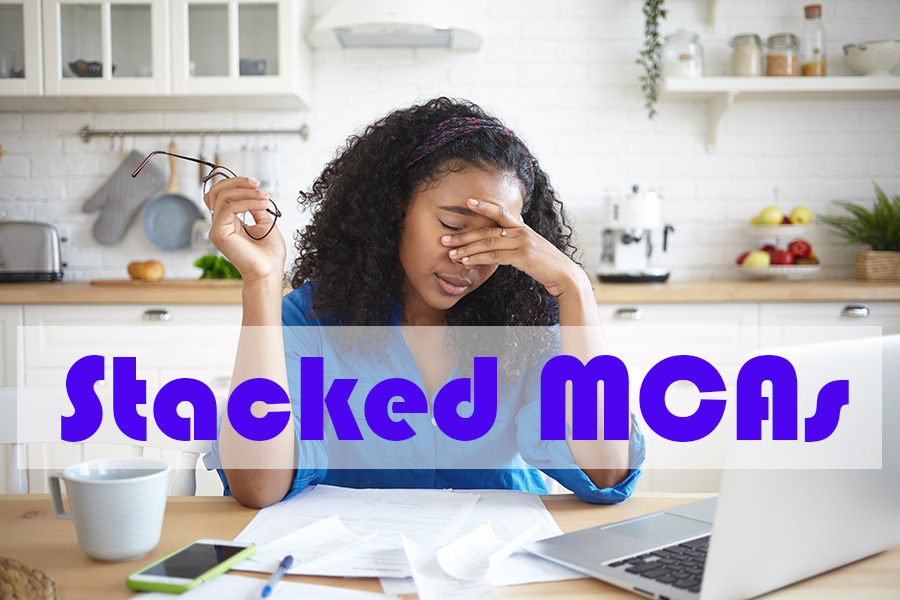For small business owners facing urgent cash needs, Merchant Cash Advances (MCAs) can seem like a quick and convenient solution. With minimal paperwork and fast approvals, MCAs are heavily marketed as an easy way to access working capital. But what many business owners don’t realize is that these advances often come with extremely high costs, and when stacked one on top of another, they can quickly become a cash flow nightmare.
What Are Stacked MCAs?
A Merchant Cash Advance is essentially a lump-sum advance of capital that is repaid daily or weekly through a percentage of the business’s credit card sales or bank deposits. Unlike traditional loans, MCAs don’t require collateral and are relatively easy to qualify for — which is why many small businesses turn to them.
Stacking occurs when a business takes out multiple MCAs from different providers at the same time, often because the cash needs of the business continue to grow. While one MCA is expensive enough, stacking two, three, or more advances creates a cycle of debt that is difficult to escape.
Why Stacked MCAs Are a Problem
Excessive Repayment Burden – Each MCA requires daily or weekly payments. When multiple MCAs are stacked, repayment amounts can consume most of a business’s incoming cash flow.
High Effective Interest Rates – MCAs don’t disclose interest rates the way traditional loans do, but their factor rates often translate into annualized costs well above 50% – 100% APR. With stacked MCAs, these costs multiply.
Cash Flow Squeeze – Small businesses rely on cash flow for payroll, inventory, and overhead. With stacked MCAs pulling funds from daily deposits, many owners find themselves short on cash just to operate.
Debt Spiral Risk – Because repayment happens so quickly, businesses often find themselves forced to take yet another MCA just to keep up with the payments from the earlier ones — fueling an endless cycle of borrowing.
The Alternative: Factoring for B2B Businesses
While MCAs can trap businesses in a high-cost debt spiral, commercial factoring offers a more sustainable solution for those operating in the B2B sector. Instead of borrowing against future sales, factoring allows businesses to convert their outstanding invoices into immediate cash.
No additional debt – Factoring is not a loan; it’s an advance against receivables.
Improved cash flow – Businesses get paid quickly instead of waiting 30, 60, or even 90 days for customers to pay.
Scalable – Funding grows as sales grow, unlike MCA approvals which often shrink as debt rises.
For small business owners, especially those in industries like manufacturing, staffing, or distribution, factoring provides the working capital needed to grow without the crushing burden of stacked MCAs.
✅ Bottom line: Stacked MCAs may solve an immediate cash need, but they create long-term problems that can cripple a business. Factoring, by contrast, is a smarter, more flexible funding tool for B2B companies that want to strengthen their cash flow and avoid the debt trap.
If your small business is trapped in previous finance decisions by electing “Stacked MCAs”, call the professionals at SECA Funding. We can help.

